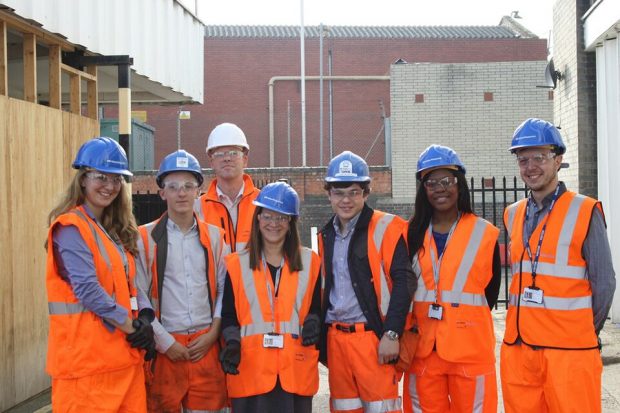Apprenticeships
Yesterday, Wednesday 27 March, the Social Market Foundation published a new report entitled Making Apprenticeships Work. The report says titles should be given to people with advanced craft skills, in the same way that an academic with a PhD is called "Doctor".
For example, the Social Market Foundation suggests people who complete high-level apprenticeships should be called "master craftsman" or "master craftswoman" in order to boost the status of apprenticeships. This was covered by BBC Online, the Times and the Telegraph.
In addition to this, our latest apprenticeship and levy statistics were released today, Thursday 28 March. The data shows that apprenticeship starts in January 2019 are 14.6% higher than in January 2018. The average expected off-the-job training hours have also increased by 26.3% from 490 hours to 630 hours.
We have been actively working to increase the profile and status of apprenticeships in this country. We believe the best way to do this is to make them higher-quality and more recognisable qualifications – that’s why we’ve made the move to the new apprenticeship standards, away from the old-style apprenticeships.
Our reforms to the apprenticeships system have fundamentally changed what an apprenticeship involves, and the long-term opportunities an apprenticeship can provide. Every single standard is matched to a recognised occupation so apprentices can be confident they will gain the skills they need to secure a good job and employer know they can access the skilled workforce they need.
Apprenticeships and Skills Minister Anne Milton said:
It’s excellent news that the number of people starting on our new high-quality apprenticeships in the first two quarters 2018/19 increased by 10% compared to last year.
We overhauled the apprenticeships system almost 2 years ago to the day and we have made good and steady progress. Apprenticeships are now longer, higher-quality, with more off-the-job training and provide for a proper assessment at the end, with the Levy giving employers the flexibility to invest in the skills they need for the future. I’m delighted that thousands of employers large and small are now embracing the huge benefits apprenticeships are bringing to their business and offering people of all ages and backgrounds the chance to progress.
Graduate Earnings
Today, we have published statistics that show the median earnings in 2016 to 2017. The figures show that one to three years after completing degree, graduates’ earnings have increased from the previous year to £19,900 one year after graduating, and £23,300 three years after graduating. These earnings also increased after being adjusted for inflation.
Universities Minister Chris Skidmore said:
We now have record rates of English 18-year-olds going into higher education, so I am delighted to see that graduate earnings have continued to increase for recent graduates, showing that it pays to study in our world-class higher education system.
We want students and their parents to have the best possible information about higher education. This data is an invaluable tool to help prospective students make the right choice and know what to expect from the course they choose.
It is vital that we ensure that higher education carries on delivering for students, the taxpayer and the economy, and it will continue to do so as long as we focus relentlessly on quality in our system.
You can read more about the new statistics on graduate earnings here.
Follow us on Twitter and don't forget to sign up for email alerts.
